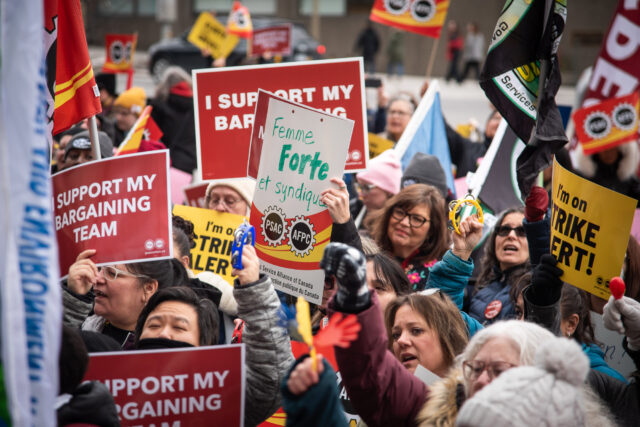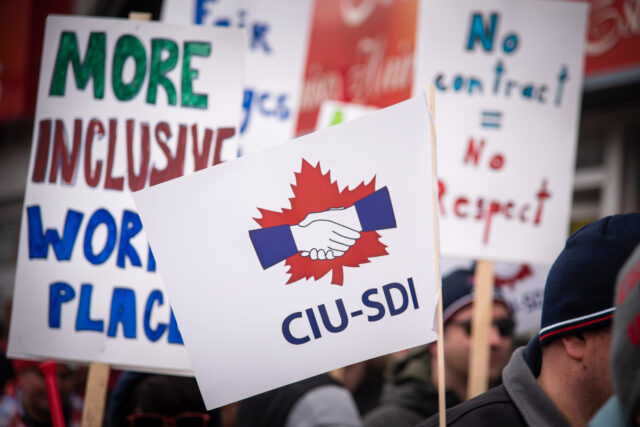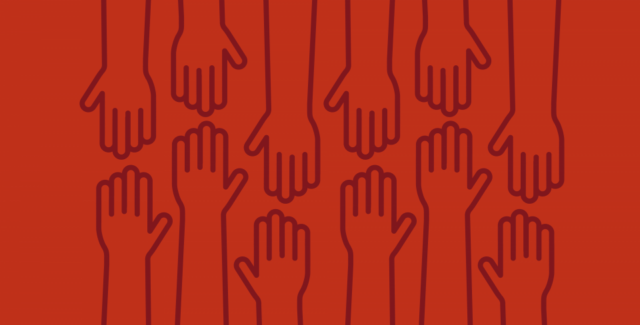If a deal isn’t reached by 9 p.m. Eastern Time on April 18 — today — PA, EB, SV and TC members, along with CRA employees, will go on strike beginning at 12:01 a.m. Eastern Time. As per PSAC, non-essential shift workers who are at work at that time should walk off the job and prepare to join a picket line when available.
For shift workers in other time zones, that also means walking off the moment a strike is declared. For example, non-essential workers in British Columbia who are at work at 12:01 a.m. Eastern Time would walk off at 9 p.m . on April 18.
Essential services agreements will also be coming into force at that time.
What work do I have to do during a strike?
If you’re in a non-essential position (PA, EB, TC, SV), you do not perform any work during a strike. Instead, report to the nearest picket line.
If you’re in an essential position (PA, EB, TC, SV), you should only perform essential duties. Ask your manager for a list of essential duties. If they do not provide one, for every task you are ordered to perform, ask your manager (in writing) if this task is essential. If they say yes (or tell you that all tasks are essential), ask (in writing) why this task is essential for the safety and security of the public (you can use the following wording: As a worker deemed essential, I must only perform essential duties. Please provide me with the reason why the requested duty is essential to the safety and security of the public). Always loop in your Branch President.
If you are a code 2 or 3 and management is asking you to come in, please ensure:
- Code 2: That you are only replacing the Code 1 person you have been identified to replace (ask your Branch President for more information)
- Code 3: That you ask the employer what specific conditions have been met for you to be called in (make sure to inform your Branch President if the employer fails to provide you with a suitable explanation)
See the PSAC strike FAQ for more information on essential services codes.
If you’re part of the FB group, you are not on strike. You may however be asked to perform duties that are not usually assigned to you. If you are ordered to perform duties outside of your usual duties, you should ask management to show you where these duties are in your job description. If they are not in your job description, and fall outside of your regular duties, ask for the order in writing, inform a union representative, obey the order now, and grieve later.
Finding and joining a picket line: When to show up, and a note about barcodes
The PSAC picket line finder is now live. Some things to keep in mind, in addition to already available information:
- If you cannot register electronically and haven’t received a barcode for strike pay, but have a PSAC membership card, bring your card with you when you attend a picket line. The barcode on the back of the card is the same that would have been sent to you by email.
- Unless otherwise indicated, picket lines will usually be active for the day. You do not need to arrive at the picket line at the time the picket line starts, but you do need to stay 4 hours to qualify for strike pay. For example, if you register for a picket line that starts at 8 a.m. and end at 4 p.m., you can arrive at 10 a.m., but should stay until 2 p.m. to qualify for strike pay. And don’t forget to check in and check out!
- New employees who have not started paying union dues can still report to a picket line, where they’ll be able to sign a card. They may be asked to verify which Branch they belong to, either by calling a Branch representative, or by providing suitable documentation (such as a hiring letter).
As always, make sure to keep an eye on the PSAC Treasury Board Strike FAQ.










